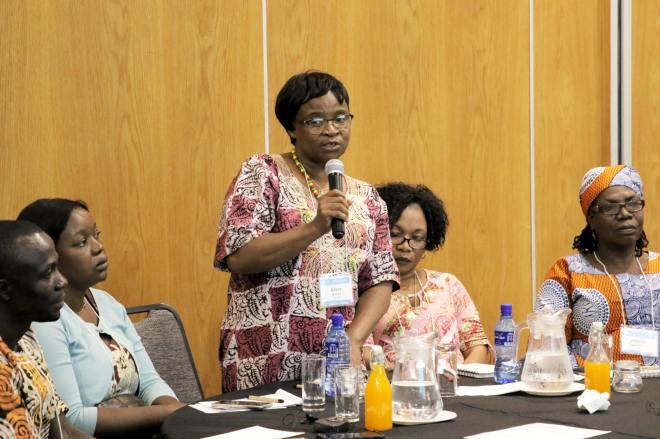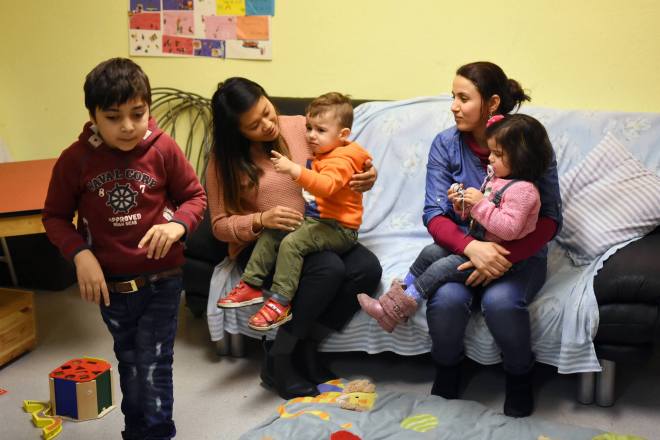
Lesson 1: Regular spiritual practices help us stay connected to God
By David Scott
April 2020 | ATLANTA
First in a three-part series.
As people around the world settle into new routines of quarantine, social distancing and other adjustments in response to the coronavirus pandemic, many will find these new realities lonely and disoriented. With worship and social gatherings discouraged, people miss face-to-face contact with their friends, family and fellow church members. Working from home or helping homeschool children unexpectedly because of school closures creates an unfamiliar set of routines and responsibilities.

As people of faith trying to come to grips with these challenging situations, we can look to missionaries as a source for inspiration. Because of the nature of their long-term, cross-cultural work, missionaries navigate social and professional disorientation and learn how to stay connected – connected to God, connected to their support networks and connected to the world they serve.
Thus, as we try to figure out how to respond to the strange new world in which we find ourselves, Global Ministries offers a few lessons from missionaries on how to stay connected.
A first lesson reveals how regular spiritual practices are good for spiritual and emotional health at any time. But especially when other routines have changed, continuing familiar spiritual practices, such as prayer and Bible reading, provides a sense of home in a new situation.
People generally choose to become missionaries because of strong faith convictions. They feel the call of God on their lives, and they respond. That sense of call may sometimes come as a result of extraordinary religious experiences, but usually that call is nurtured and affirmed in the context of the regular devotional life of a local congregation. Missionary Grace Musuka, for instance, says that her faith journey has been shaped by “family prayers, quiet times, reciting and memorizing Bible verses and reading the Bible, participating in community work, singing in the church choir and teaching Sunday school.”1
When missionaries begin their missionary service, they find themselves in a new place, often far away from the faith communities that nurtured their call to missionary service. This separation from familiar patterns of religious life can be disorienting. Reflecting on
being in Germany while her home community dealt with a tragedy in Virginia, Global Mission Fellow Yvonne Agduyeng remarked, “More than once I have been homesick. But I think sitting there [in Germany] on Sunday morning was the first time I felt alone.”2
God is always with us, no matter where we go. Eventually, missionaries form connections with new faith communities, new forms of worship, and new companions on their faith journeys. But the transition period can sometimes be long. For Christians who serve in areas with few other Christians, this sense of spiritual isolation can be acute.

PHOTO: ÜLLAS TANKLER
By maintaining the patterns of their devotional life, missionaries keep their faith strong while adjusting to new forms of corporate worship. In this way, missionaries experience the assurance of God’s presence, even when they don’t receive the assurance as strongly through familiar forms of worship.
Missionary John Elmore shared with mission partners: “God tells us to pray constantly, which is hard to do. In order for me to keep God present, not just on Sunday or in a church activity or meeting, we pray every time we sit down to receive food. It does not matter if we are at home or in a restaurant, we pray and thank God.”3
For many missionaries, personal devotions include devotional literature. Some of the most profound devotional literature has been written by missionaries and was adopted first by other missionaries. E. Stanley Jones’ devotional writings and Lettie Cowman’s Streams in the Desert are prime examples.
Missionary families know the importance of practicing family devotions. While this pattern of piety becomes less popular in American culture as time pressures on families increase, spiritual practices such as reading the Bible and devotional materials, praying, and singing together can help keep up both religious faith and family unity in stressful times.
Being physically separated from church communities that have nurtured our faith lives – because of the closure of churches, official restrictions on large gatherings and the necessity of social distancing – may be spiritually disorienting. But some of the same solutions that support missionaries’ faith can support ours as well. Continue to pray and read the Bible and read devotional literature, such as these devotionals provided by The United Methodist Church or those sent out by our local churches and annual conferences. This communal practice can give us a sense of belonging to the great company of witnesses. And, additional time at home with family can present an opportunity to start family devotions (perhaps by following these suggestions from UMCOM: http://www.umcom.org/learn/faith-formation-begins-at-home). Even if these practices have not been part of our previous routines, they can help us keep our connection to God strong in a difficult time.
The second reflection in this series will focus on staying connected to our social support networks despite distance.
Dr. David Scott is a mission theology consultant with Global Ministries.
NOTES 1 “Musuka, Grace,” Global Ministries, https://advance.umcmission.org/p-1583-musuka-grace.aspx, accessed March 20, 2020. 2 Yvonne Agduyeng, “Global Mission Fellows: I am not alone,” UMC Giving, http://www.umcgiving.org/impact-articles/global-mission-fellows-i-am-not-alone, accessed March 26, 2020. 3 “Missionary John Elmore,” Rolling Hills United Methodist Church, https://rhumc.org/missionary-john-elmore/, accessed March 26, 2020

